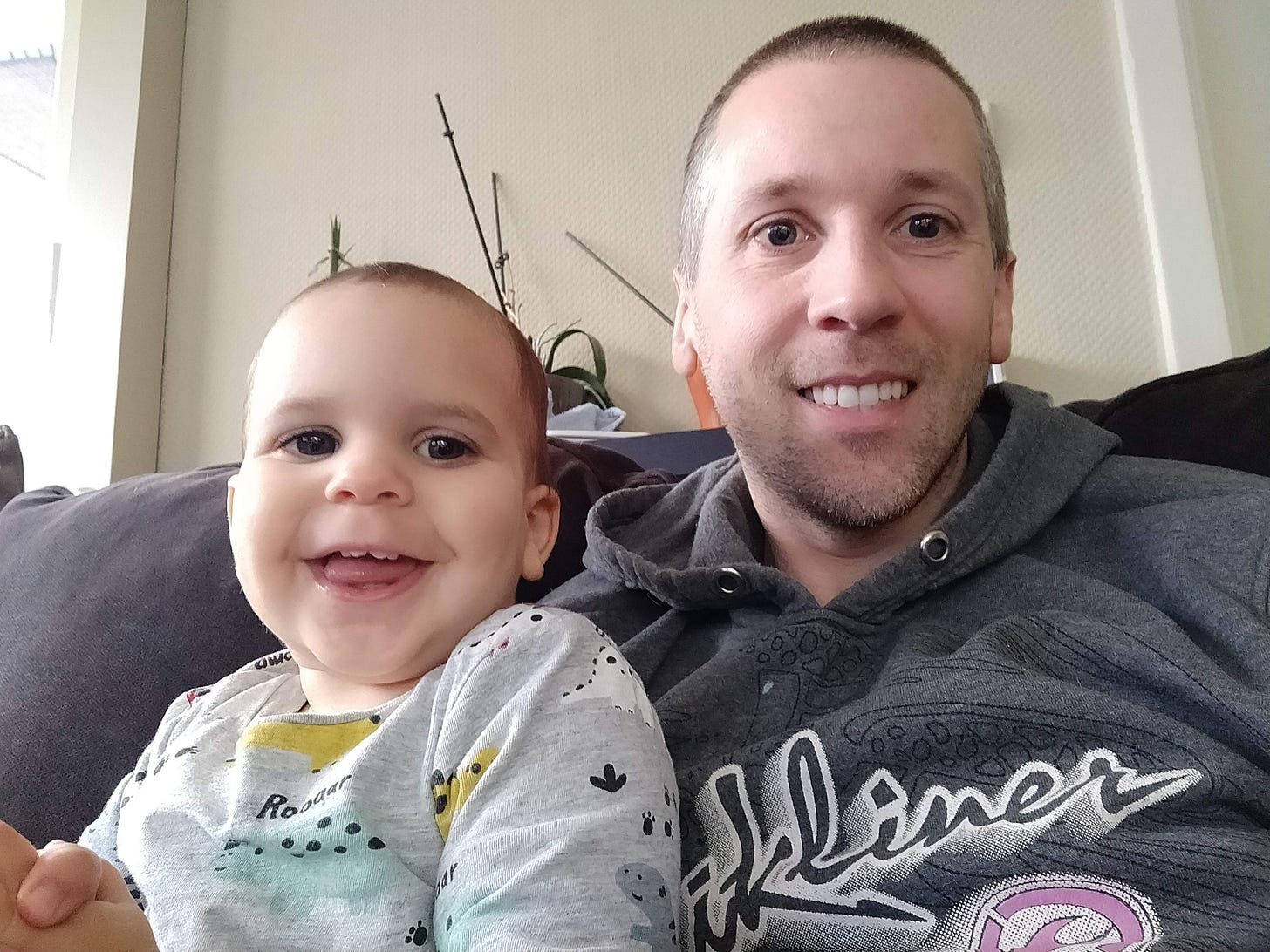Three men and their international surrogacies
They travelled from the UK to Canada, from Belgium to the US, from Australia to Colombia. A few words about what it's like to do surrogacy these days.
One of the things assisted reproduction makes possible is families led exclusively by dads. If you're an entirely male household and you're not adopting, you will need both an egg donor and a surrogate. That means a significant commitment of money, time, planning and patience. And because many countries ban surrogacy for men, it also often means travelling great distances.
Below, I share the words of three dads describing their overseas surrogacies. Two of the dads are gay men in partnerships and one is a straight single man. They were speaking at a session put on by Growing Families, an organization based in Sydney, Australia.
4 minute 30 second read
Steven
Lives in: UK
Did surrogacy in: Canada
"We were offered a package that would guarantee that we would have two kids — one genetic child for each one of us, which is really something that we wanted to have.
"The egg donor was from Canada. There was a huge Canadian database and we had a lot of choice. It was really clear what the features were of the egg donor, what her medical history was, and whether or not she was a known or unknown donor. Everything was clearly documented. I like to call it a Tinder for egg donors.
"The relationship with the surrogate didn't really stick to a business relationship — we call each other extended family. We are connected with her whole family — not just her, but also her kids and the in-laws. We still have frequent contact.
"Same goes for the egg donor. We are still in contact with the egg donor.
"We wanted to be ethical. We wanted to be able to convey the right message to our child about how he came to be."
Cedric
Lives in: Belgium
Did surrogacy in: USA
"My husband and I were 39 and 37 when we started looking into this. I work in a US company where I'm a member of an LGBT network. Several of my colleagues in the US had had kids and they recommended the clinic and the agency. That made the choice a bit easier. We had a pretty fast process. We started in November 2017 and our daughter was born in 2019.
"She was born four months early, at 24 weeks. It was quite complicated from a medical point of view, and we had to spend six months with her in hospital in the US. This raises the question that many people ask — about medical insurance. Also about planning for the unexpected. We were lucky that our jobs gave us six months off with pay, to go there, but that's not the case with everyone.
"We had significant issues on the insurance side. It could have been a very complicated process financially if we had not solved the insurance issue.
"Our daughter is totally fine now. She's two years old. She speaks French and English. She's walking, talking, and doing everything a normal kid does, despite this very tough start to her life.
"I think it's important to remain friends with the surrogate because one day your kid is going to ask about her. It would be nice for the child to meet that person. Our daughter will meet our first surrogate when we go to meet baby number two in August. And I hope that in 20 years we'll still be in touch.
"I would say: don't dream of making it the friendship of your life, but at the same time, pick someone who you are happy to have in your life."
Nick
Lives in: Australia
Did surrogacy in: Colombia
"I got interested in parenthood late in life, after my mum passed away. I'm 49, and I now have a 7-month-old daughter.
"As a single parent I had to think about cost. Canada and America were for me very expensive. Being single, Ukraine is knocked out — only married couples could go there. Colombia had just started up its program. It was a leap of faith.
"My ex-girlfriend was my donor. She'd donated her eggs before, and she'd intended to do it again before she turned 40, and it turned out it was for me. She was 39, but she was very fertile, she had a lot of eggs. I've still got two viable embryos in Colombia if I want to go back.
"My daughter was born last August. The Australian government gave me permission to leave the country, but Colombia's borders were closed. I tried everyone, but it took me six weeks to get into the country.
"It actually worked out really well. I was going to be a single guy going to Colombia. On the day of her birth, I would have been given a baby and told, 'Off you go!' What happened is the clinic actually provided me with someone to look after the baby until I got there. She and I still speak every day, even now, seven months later.
"She was amazing. I hired her to stay with me the first month. We actually travelled together. Once you've asked for the passport and you've done the DNA testing, you've got several weeks until your next appointment. There was nothing to do in Bogota, so we went off and sat on the beach.
"I was there two and a half months. We got a repatriation flight home on December 5, and we were out of quarantine for Christmas."
These stories were edited and condensed.
Note: Starting next week, paid issues will include an events listing of relevant goings-on that cross my desk.
Support HeyReprotech’s independent journalism. If you’re not already a paying subscriber, become one today.
Follow me @AlisonMotluk and @HeyReprotech
Check out the archive
Send questions, comments, or tips to alison.motluk@gmail.com



